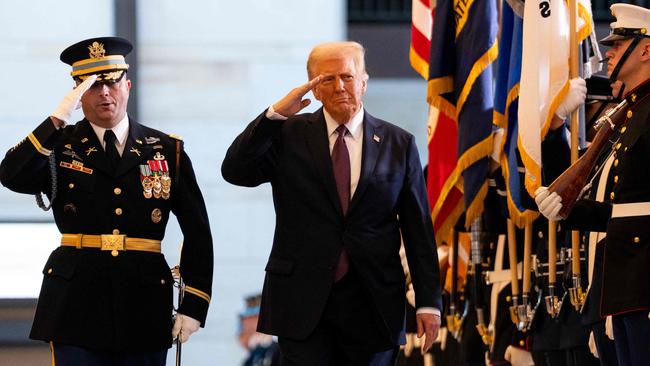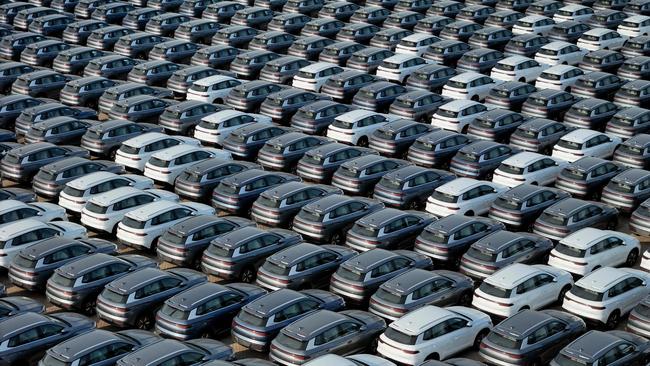President Donald Trump sets his sights on Electric Vehicles
President Donald Trump’s new policies on the motoring industry, especially electric vehicles, is set to really shake things up.
Motoring
Don't miss out on the headlines from Motoring. Followed categories will be added to My News.
President Donald Trump doubled down on his promise to dismantle what he calls Biden’s “electric vehicle mandate” in his inaugural speech.
That’s Trump’s phrase for an Environmental Protection Agency rule that requires auto manufacturers cut greenhouse gas emissions by half in new light- and medium-duty vehicles beginning in 2027.
The EPA estimated Biden’s rule would force automakers to build electric vehicles for about 30 – 56 per cent of their new light-duty vehicles and 20-32 per cent of new medium duty vehicles by 2032.
While the rule was not legally binding, it was a goal set by Biden for automakers to strive for.
“The Common theme is really unleashing affordable and reliable American energy,” an unnamed Trump official was quoted by Reuters.
“Because energy permeates every single part of our economy, it’s also key to restoring our national security and exerting American energy dominance around the world.”
It’s clear that Trump is pushing US oil and natural gas production as he declared a national energy emergency.

“America will be a manufacturing nation once again, and we have something that no other manufacturing nation will ever have, the largest amount of oil and gas of any country on Earth, and we are going to use it,” Trump said in his inauguration speech at the US Capitol.
“We will drill, baby, drill.”
Trump’s plan to rollback EV policies could significantly impact major US automakers like General Motors and Ford, which have invested billions into EV development.
Trump did not address tariffs in his inaugural speech but it doesn’t mean that he won’t.
“He chose not to do a kneejerk tariff move today that could then be negotiated away, but the Trump administration and Republican Party goals for tariff revenues suggest that the tariff threat is still out there,” Rachel Ziemba, an economic and political risk expert, told Al Jazeera.

His previous administration imposed tariffs on imported vehicles and parts and Trump has previously proposed a 60 per cent tariff on Chinese imports, and a 100 per cent tariffs on all cars made in China.
Higher tariffs mean US automakers may face higher production costs, especially for batteries and other essential EV parts sourced from China.
The flow on effect means that consumers may be paying more for an EV.
Trump has criticised free trade agreements like North American Free Trade Agreement (NAFTA), which he replaced with the United States-Mexico-Canada agreement (USMCA).
The USMCA imposed stricter rules on sourcing auto parts, requiring 75 per cent of components to be manufactured in North America.
It was a move designed to support US jobs but it was criticised for increasing costs for automakers.
Trump’s proposals aim to protect American automakers but critics argue that higher tariffs and reduced EV incentives may make US manufacturers less competitive.
More Coverage
Originally published as President Donald Trump sets his sights on Electric Vehicles




